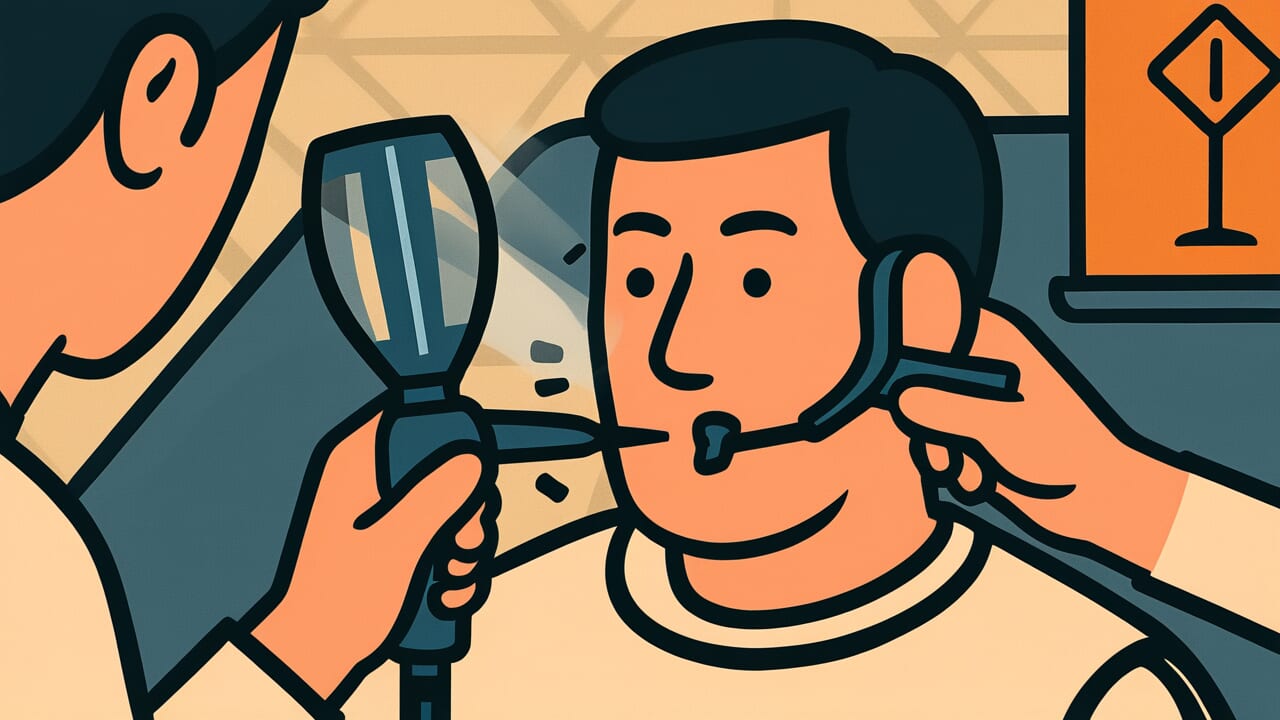How to Read “Cut off your nose when the time calls for it”
Toki no yō ni wa hana wo kake
Meaning of “Cut off your nose when the time calls for it”
This proverb teaches that in emergencies or urgent situations, you must completely abandon your dignity, appearances, and pride to prioritize solving the problem.
By using the extreme image of cutting off your nose from the center of your face, it shows strong determination.
No matter how embarrassing or uncool something is, you must not hesitate when the moment demands it.
This saying applies to desperate situations like company bankruptcy, family illness, or disasters—true “times that call for action.”
Things you would never normally do, like bowing your head to ask for help, admitting your mistakes, or swallowing your shame to borrow money, should be done without hesitation when necessary.
Even today, this proverb offers practical wisdom. It teaches the importance of abandoning pride and taking action in crises, rather than clinging to appearances and letting things become too late.
Origin and Etymology
No clear written records explain the origin of this proverb. However, we can make interesting observations from how the phrase is constructed.
“Toki no yō” means urgent necessity or a pressing situation. “Yō” doesn’t just mean a simple task—it refers to a critical matter that must be addressed.
Then comes the shocking expression “cut off your nose.”
The nose sits at the center of the face and defines a person’s appearance. Before the Edo period in Japan, cutting off someone’s nose was sometimes used as punishment for serious criminals.
This meant social death and brought extreme humiliation. On battlefields, warriors sometimes cut off enemy noses instead of taking heads as proof of victory.
The nose symbolized a person’s dignity itself.
This proverb carries a powerful message: “Handle emergencies with the resolve to cut off even your nose, which symbolizes your dignity and reputation.”
There’s no time to worry about appearances or what others think. By deliberately using extreme physical mutilation as an example, the saying expresses this sense of urgency.
This bold metaphor contains the concentrated practical wisdom of our ancestors.
Usage Examples
- The company was on the verge of bankruptcy, so following “Cut off your nose when the time calls for it,” I bowed my head to our rival company and proposed a partnership
- This is no time to talk about pride—”Cut off your nose when the time calls for it,” let’s ask for help right now
Universal Wisdom
Everyone has dignity and pride they want to protect. These are important pillars that support our existence as we live in society.
However, this proverb teaches a truth: moments will inevitably come in life when you need the courage to let go of even these precious things.
What’s interesting is that the proverb doesn’t simply say “abandon your pride.” It adds the condition “when the time calls for it.”
In other words, it doesn’t deny living with pride in normal times. Rather, it emphasizes the importance of judgment—distinguishing between real crises and other situations.
People often become most paralyzed when they should act most decisively. Fear of loss, resistance to embarrassment, and anxiety about what they’ve built crumbling—these cloud rational judgment.
But our ancestors saw through this psychological trap.
This proverb has been passed down through generations because it accurately captures this inherent human weakness and the need to overcome it.
True strength doesn’t lie in protecting your pride at all costs. It lies in the flexibility to let it go when necessary.
This deep understanding of human nature is embedded in these words.
When AI Hears This
Cutting off your nose represents a typical example of an irreversible choice. In game theory, there’s a strange phenomenon where “creating a state you cannot return from” actually gives you an advantage in negotiations.
Consider an army that crosses a bridge into enemy territory, then burns the bridge behind them. At first glance, this seems foolish—losing your escape route.
However, this puts soldiers in a “fight or die” situation, maximizing their combat effectiveness. More importantly, the enemy knows this too.
The enemy recognizes “that army cannot retreat—they will fight with everything they have.” This actually increases the chance the enemy will withdraw instead.
The core of this strategy is changing the opponent’s predictions by reducing your own options. Normally we think more options are better, but game theory shows the opposite can be true.
Thomas Schelling, who won the Nobel Prize in Economics, mathematically proved this “power of self-binding.”
The irreversible act of cutting off your nose embodies exactly this principle. Verbal promises can be broken, but physical changes cannot lie.
That’s why such determination reliably communicates to others and gains the power to move situations. Here lies the paradox: abandoning options can actually become the strongest choice.
Lessons for Today
For those of us living in modern times, this proverb teaches “the ability to discern what truly matters.”
This lesson carries even more weight in today’s era, where we constantly face others’ eyes on social media and live worrying about evaluations.
When you make a big mistake at work, when trouble arises in relationships, when you face health or financial crises—at such times, which do you choose: protecting your reputation or solving the problem?
Many people miss the timing to ask for help because of embarrassment or pride.
But think about it. Temporary shame or damage to your reputation heals with time. However, the consequences of not dealing with something when you should can become irreversible.
This proverb reminds us of these life priorities.
What matters is keeping this teaching in your heart from day to day. If you know that the courage to abandon pride in critical moments is actually courage only the strongest people possess, you can make the right choice without hesitation.



Comments